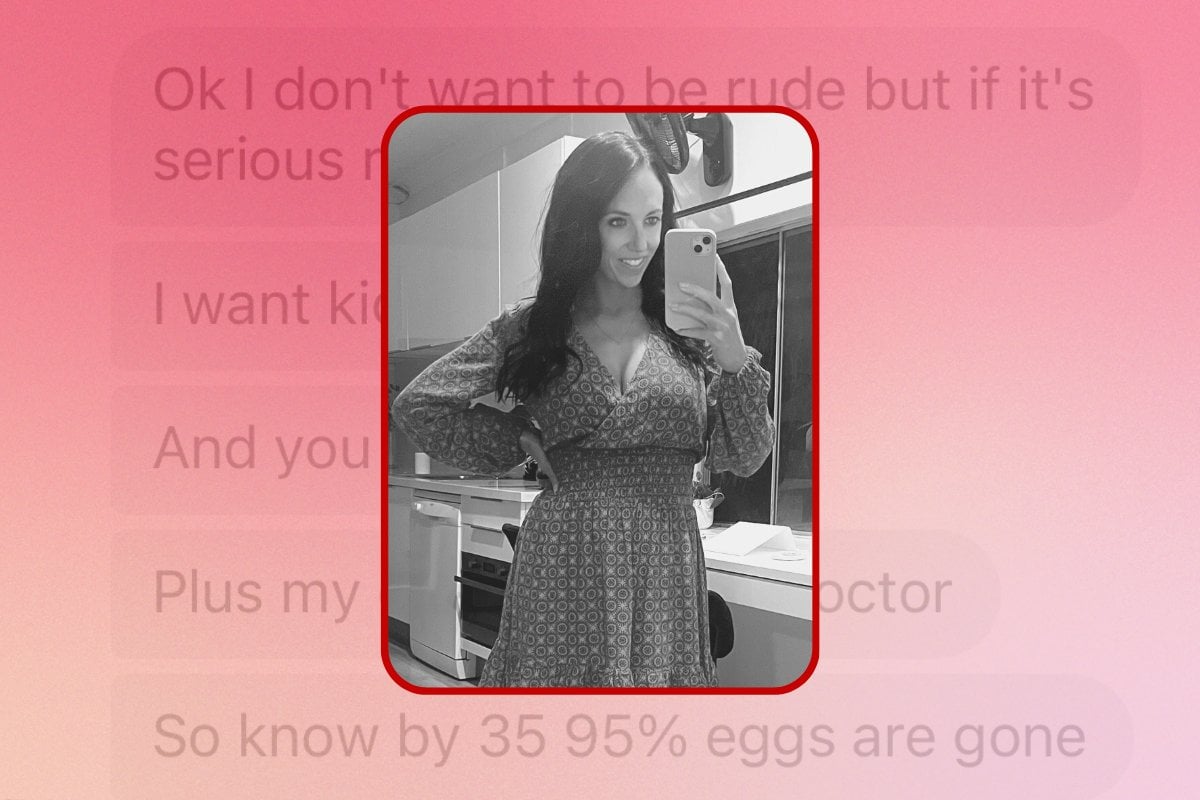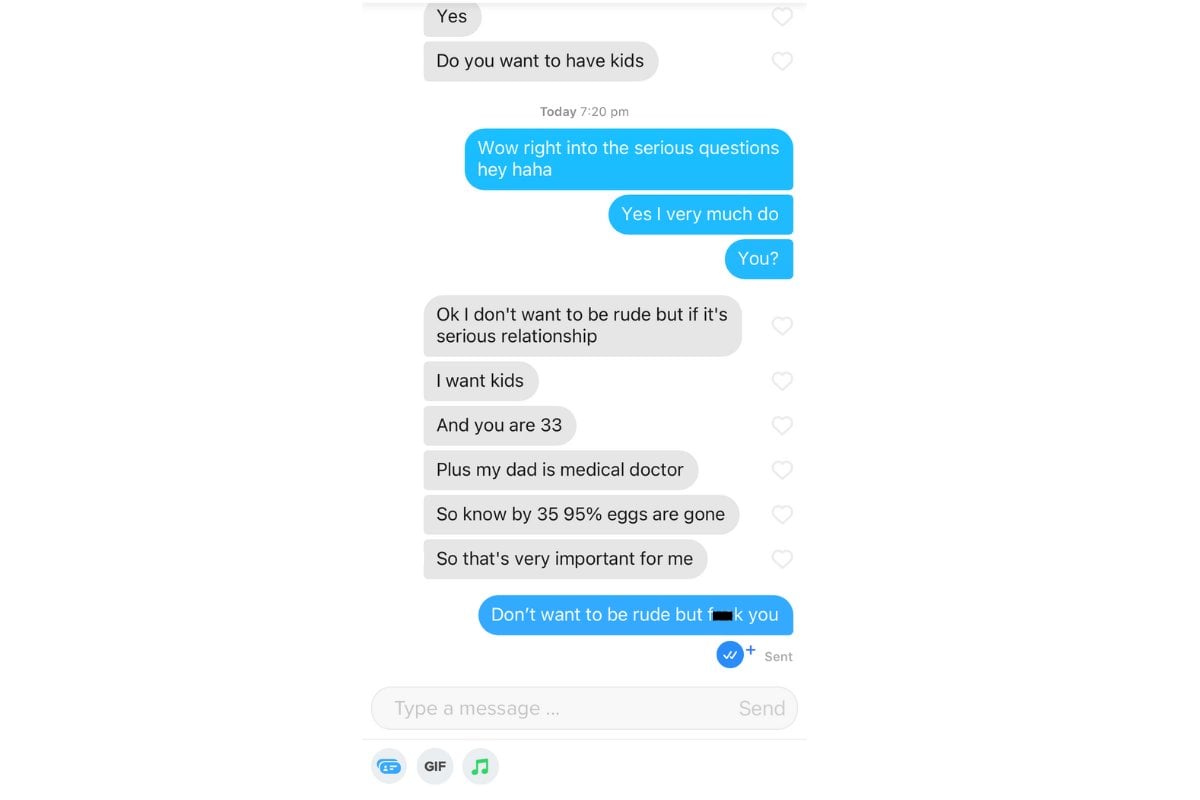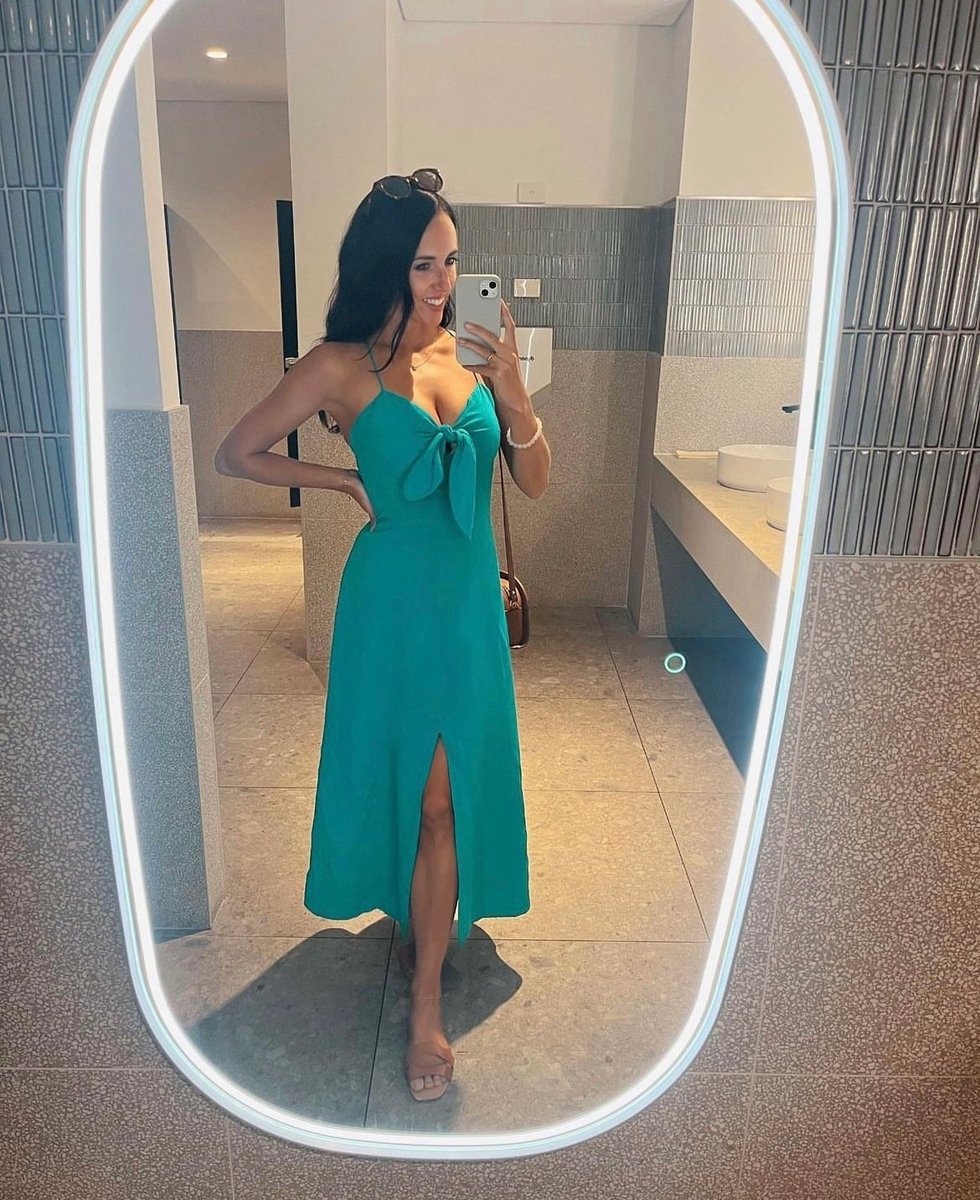
It’s exactly five weeks and three days until my birthday (hellooo Gemini main character season) and let me tell you personally, that TICK TICK TICK is ringing loud and clear.
Because as I’m yanked towards 34 and yet another birthday in my 30s, the same intrusive thoughts are commandeering my headspace. But to be honest they’re the same thoughts that have been lurking in my periphery since my bestie popped out a baby 11 years ago.
Time is running out to get pregnant.
Watch: The trailer for Get Me Pregnant. Post continues after video.
A decade later and the majority of my mates now have multiple kids and that teeny tiny bub I visited in hospital is preparing to start highschool. HIGHSCHOOL! Meanwhile, I’m still over here being haunted by the ghosts of dwindling fertility because, as a single woman approaching her mid-30s, the dating pool has got a lot worse. Like, A LOT.
May I present Exhibit A.
“Do you want to have kids?” my Tinder match asked me a mere five minutes into pleasantries.
“Wow right into the serious questions, hey! Haha,” I replied, deer-in-the-headlights. Had I found a man who actually KNEW WHAT HE WANTED?!



Top Comments